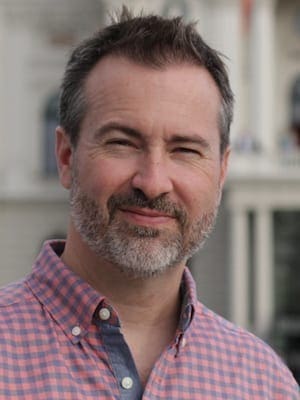“Who would’ve thought we’d have a black son before we knew a Democrat?”
The line exemplifies the sly humor and social reality of “The Blind Side,” a new film by John Lee Hancock (“The Rookie”) about the real-life story of Michael Oher. Oher was a homeless African-American youth before being taken in by a wealthy white couple, Leigh Anne and Sean Touhy, in Memphis.
The Touhys gave Oher a room in their home and a tutor to help him after he was admitted to a private Christian school, originally on grounds that he’d make a terrific football player. You can probably guess the ending, if you don’t already know.
In the satisfying film, based on the book “The Blind Side: Evolution of a Game” by Michael Lewis, Michael gets into the school because the football coach persuades the administration to let him in. “It’s the right thing to do,” the coach says, even if Michael’s presently horrific GPA means he can’t play football.
Michael, or “Big Mike” as everyone calls him, is enrolled at the majority white school. He has no friends and, as it turns out, no place to stay.
Enter Leigh Anne Touhy, played with perfect spunk by Sandra Bullock. Leigh Anne and Sean (Tim McGraw, in a good supporting role) have children at the school and are aware of Big Mike, but that’s where it stops.
Until one night. Michael winds up sleeping on the Touhy couch courtesy of Leigh Anne’s conscience, and lives change.
Surprisingly perhaps, “The Blind Side” is only secondarily about sports. Not until the film’s second half does football really enter the narrative. Until then, it remains in the background, forcing the viewer to wonder if it really even matters to the picture.
But the film actually opens with a sort of prologue about football – one that’s well done and a portent of good things to come, with the exception of a few overly scripted scenes regarding Leigh Anne’s motives.
In addition to Sandra Bullock’s winsome performance, fans of Southeastern Conference football will enjoy cameos by Phil Fulmer, Lou Holtz, Tommy Tuberville, Nick Saban, Houston Nutt and Ed Orgeron (not a single one of whom coaches where they did when this story took place just a few years ago).
One of the critical issues about “The Blind Side” for some will be what seems like the “paternalistic” nature of the story. If this tale were fictional, it would no doubt be characterized as paternalistic. But what to do with the fact that it really happened?
One’s moral evaluation of the story is caught between two poles: the truth of the religious proverb that says we save an entire world when we save one soul, and ancient scriptural imperatives to work for justice. “The Blind Side” is obviously a powerful story about the former.
When folks criticize this kind of story – privileged whites intentionally providing disadvantaged blacks with opportunities for success – it seems that part of the criticism is directed toward the dearth of justice. Part of the discussion is also about “white guilt,” which is not unrelated to injustice, of course.
My point is not to ruin with hypercriticism what is essentially a good movie. However, it would be a missed opportunity simply to praise the Touhys (who did do the right thing) and overlook continued injustice related to race, poverty and education.
Here’s hoping that more of us will have the courage and conviction of Michael Oher and the Touhys, and that systemic inequality won’t remain on our blind side.
Cliff Vaughn is managing editor and media producer for EthicsDaily.com.
MPAA Rating: PG-13 for one scene involving brief violence, drug and sexual references.
Director: John Lee Hancock
Writer: John Lee Hancock
Cast: Sandra Bullock: Leigh Anne Touhy; Tim McGraw: Sean Touhy; Quinton Aaron: Michael Oher; Kathy Bates: Miss Sue.
The movie’s official Web site is here.

